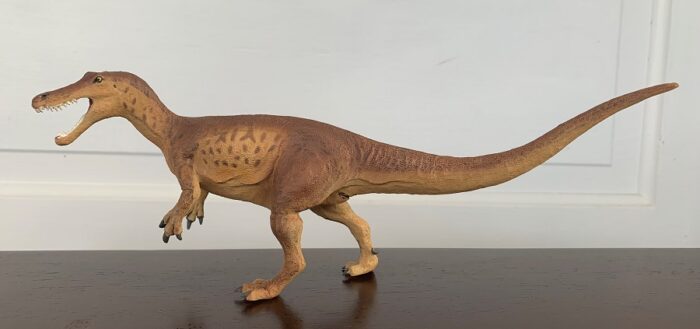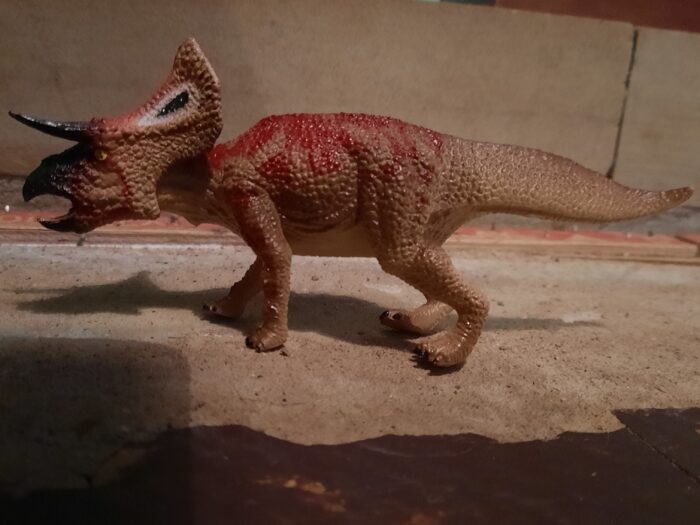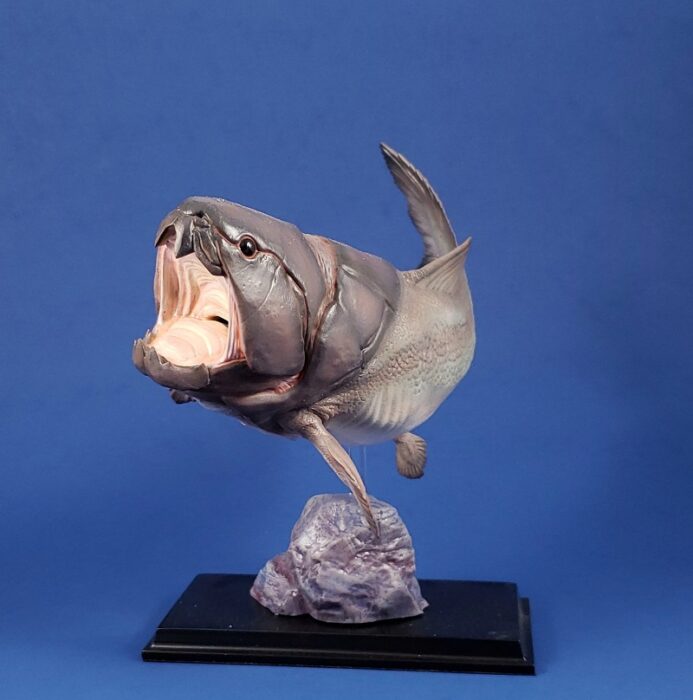Before Spinosaurus was all the rage, and before we even had a good grasp of what Spinosauridae was as a family, Baryonyx was the bizarre piscivorous theropod that was capturing the public imagination. In much the same way modern companies try to keep up with new discoveries, Invicta Plastics was able to produce a Baryonyx in 1989, only 3 years after it was fromally described.
Type: Figurine
Review: Parasaurolophus (AAA)
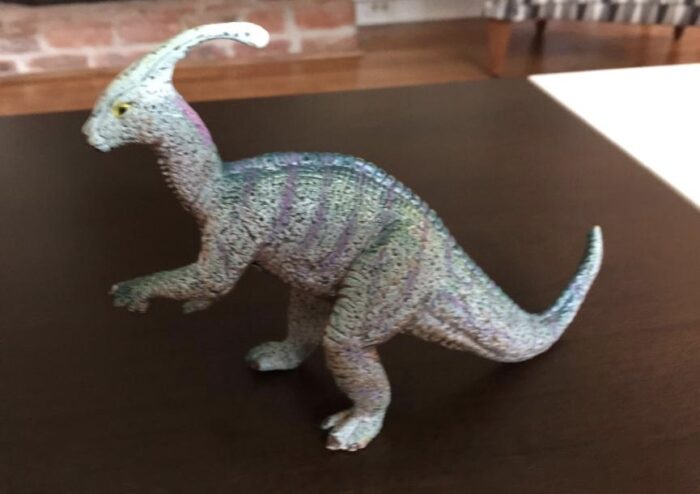
Review and photos by Strawberry Crocodile, edited by Suspsy
Hadrosaurs are often relegated to the role of “supporting cast” in dinosaur media. Despite their success as a group, they simply don’t grab people’s imaginations as much as deadly theropods, record-shattering sauropods, or the absolutely bizarre shapes their ornithischian cousins have taken.
Review: Cryolophosaurus (Dinosaurs by Schleich)
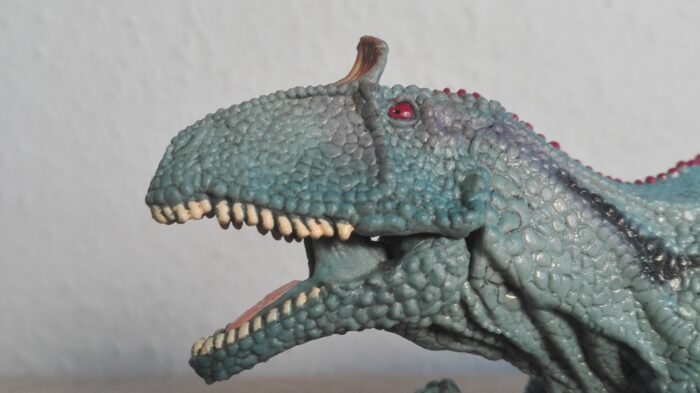
Review and photographs by Stolpergeist, edited by Suspsy
Schleich had a strong release year in 2019 and the upcoming 2021 releases look quite promising. The 2020 releases, however, received a lot of criticism among collectors and thus didn’t get much attention. Today, I am taking a closer look at one of those releases, the Cryolophosaurus, and will examine it to find out where this flak came from.
Review: Pleuroceras Ammonite (Prehistoric World by CollectA)
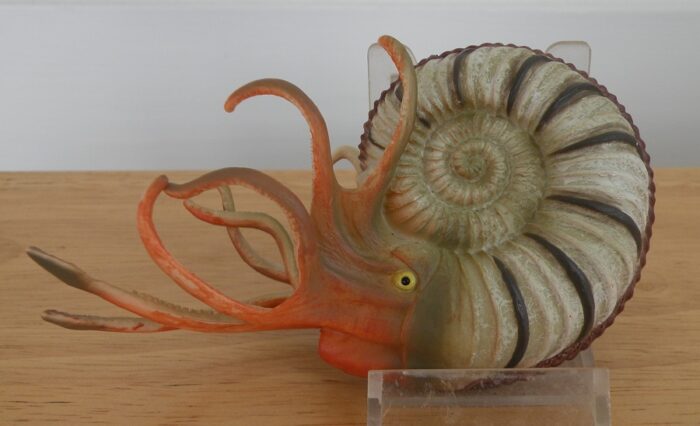
Alongside trilobites, ammonites are far and away the most popular group of prehistoric invertebrates. These shelled cephalopods belong to the broader Ammonoidea, which evolved over 400 million years ago during the Devonian. Keep in mind that not all ammonoids are ammonites and actual ammonites from the Ammonitida clade lived during the Jurassic and Cretaceous, a time during which they flourished.
Review: Triceratops (2017)(Bullyland)
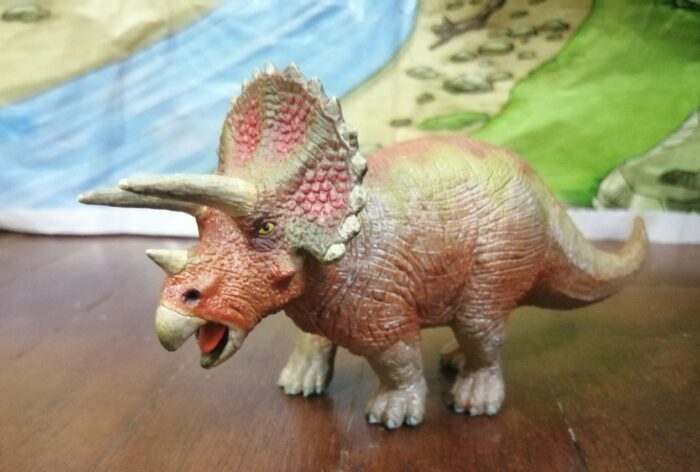
Review and photos by Prehistory Resurrection, edited by Suspsy
The most recent news that we have of Bullyland is that the company entered bankruptcy in 2019. They were thought to be definitely out of business, but in January 2020, the company reemerged with a repaint and seven mini figures.
Review: Ceratopsian Dinosaur/Serendipaceratops (Lost Kingdoms Series B by Yowie)
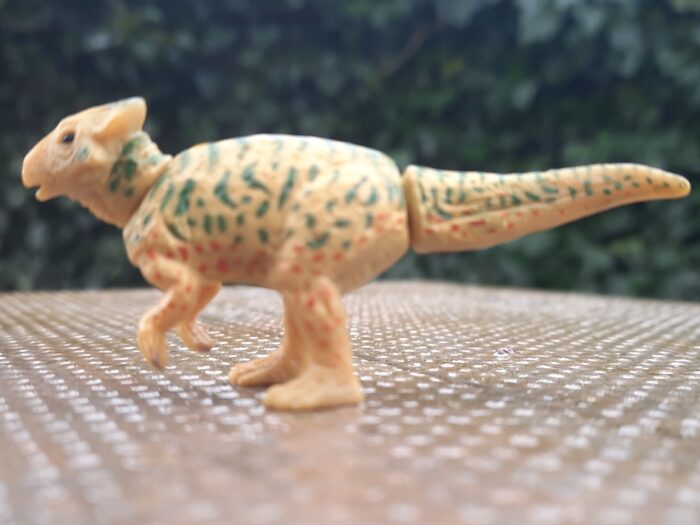
A lot of fossil species are erected by the slimmest of evidence, be it a toe bone, vertebrae or something else. This can make it very hard to discern where they fit into the scheme of life. This review’s subject, Serendipaceratops, is such an example, known only from a single leg bone, the ulna specifically.
Review: Zuniceratops (Jurassic Hunters by Geoworld)
Review: Dunkleosteus (Mojö Fun)
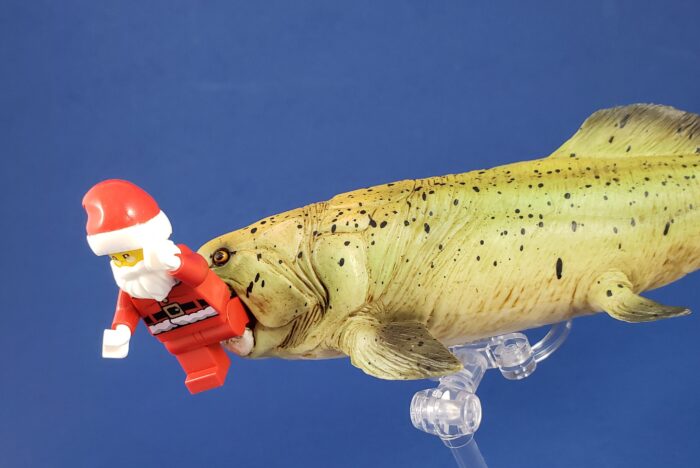
350 million years before the advent of humans, reindeer, or consumerism, our distant gnathostome forebears celebrated Fishmas. Fishmas originated when Santa Claus turned the wrong dial on the time machine he uses to travel to every house in the same night, landing him in the Devonian and the gaping maw of a Dunkleosteus.
Review: Lambeosaurus (PNSO)
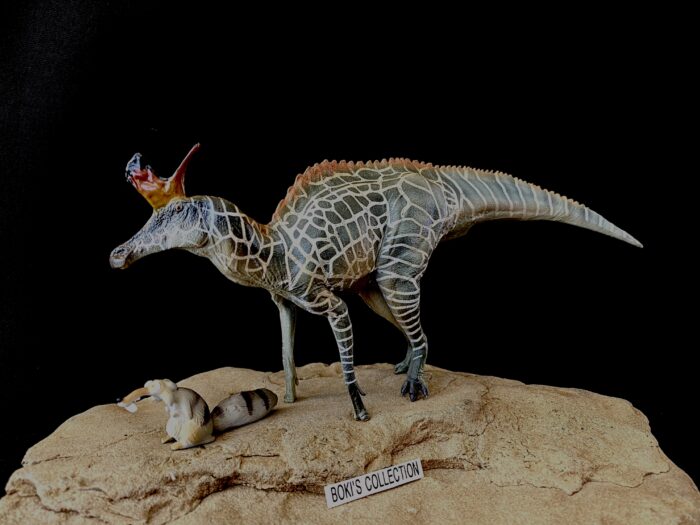
Within the last few years, the ornithopod group of dinosaurs has seen a renaissance after being neglected for a long time. It wasn’t always the case, in fact some of the first dinosaur toy figures were from this group. But despite having had early fame, the group would soon be relegated to the sideline as token prey species for the ever-popular throng of predatory theropods.
Review: Belemnite (Prehistoric World by CollectA)
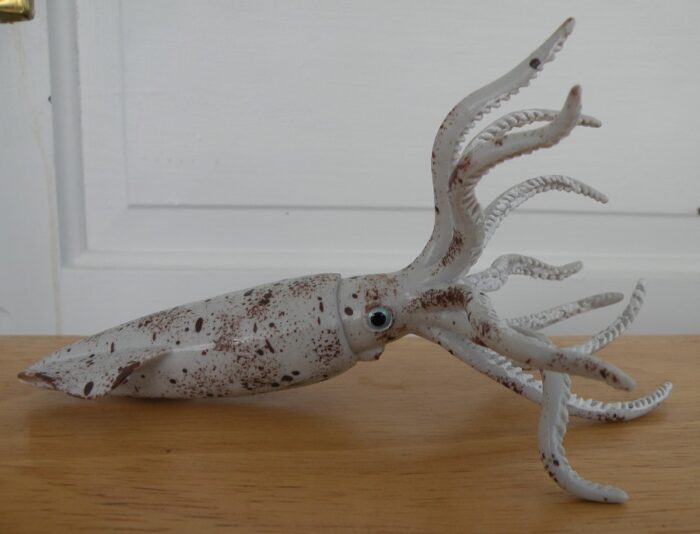
CollectA has long been at the forefront of producing obscure toys of prehistoric animals but by and large they’ve all been tetrapods; four legged vertebrates and their descendants. This includes a variety of dinosaurs, pterosaurs, marine reptiles, and mammals. But this year CollectA has raised the bar and released four prehistoric invertebrate figures: a trilobite (Redlichia rex), Orthoceras, Pleuroceras ammonite, and a belemnite.
Review: Dunkleosteus (Like Hobby by ThinkArt)
Review: Cambrian Creatures Mini Model Collection (Favorite Co. Ltd.)
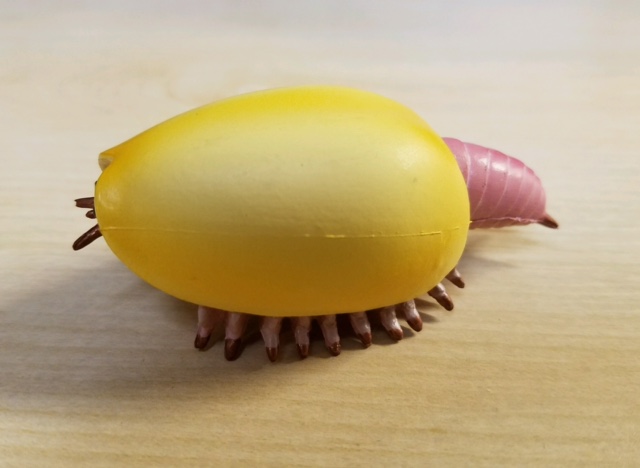
Review and photos by bmathison1972, edited by Suspsy
Today, we will be looking at an overview of the Cambrian Creatures Mini Model collection released by Favorite Co. Ltd. in 2016. It consists of eight smaller models representing primarily Cambrian invertebrates along with one chordate.

